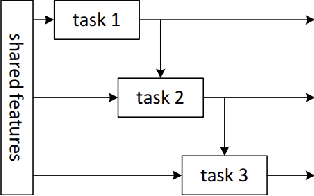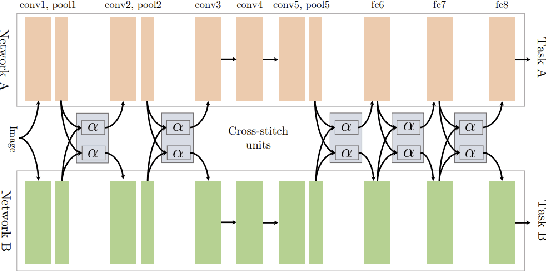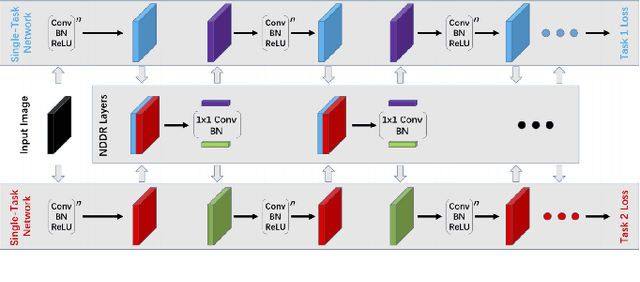Multi-Task Learning with Deep Neural Networks: A Survey
Paper and Code
Sep 10, 2020



Multi-task learning (MTL) is a subfield of machine learning in which multiple tasks are simultaneously learned by a shared model. Such approaches offer advantages like improved data efficiency, reduced overfitting through shared representations, and fast learning by leveraging auxiliary information. However, the simultaneous learning of multiple tasks presents new design and optimization challenges, and choosing which tasks should be learned jointly is in itself a non-trivial problem. In this survey, we give an overview of multi-task learning methods for deep neural networks, with the aim of summarizing both the well-established and most recent directions within the field. Our discussion is structured according to a partition of the existing deep MTL techniques into three groups: architectures, optimization methods, and task relationship learning. We also provide a summary of common multi-task benchmarks.
 Add to Chrome
Add to Chrome Add to Firefox
Add to Firefox Add to Edge
Add to Edge